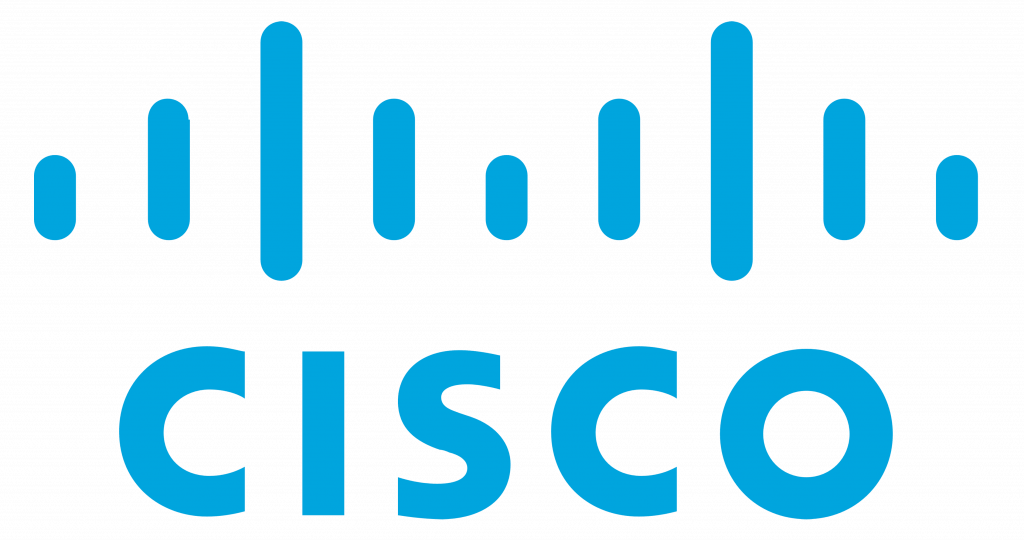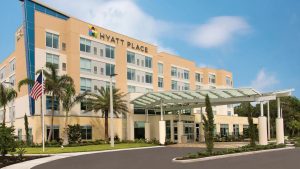Cisco CCNA Implementing and Administering Cisco Solutions v2.0 (1 Cert) – 5 Days
Training Schedule and Pricing
Our training model blends knowledge and certification prep into one solution. Interact face-to-face with vendor certified trainers AT OUR TRAINING CENTER IN SARASOTA, FL - OR - attend the same instructor-led live camp ONLINE.
-
Apr292024Delivery Format:CLASSROOM LIVEDate:04.29.2024 - 05.03.2024Location:SARASOTAPrice Includes:Instructor Led Class, Official Courseware, Labs and Exams$3,9955 days
-
May132024Delivery Format:CLASSROOM LIVEDate:05.13.2024 - 05.17.2024Location:SARASOTAPrice Includes:Instructor Led Class, Official Courseware, Labs and Exams$3,9955 days
-
Jun032024Delivery Format:CLASSROOM LIVEDate:06.03.2024 - 06.07.2024Location:SARASOTAPrice Includes:Instructor Led Class, Official Courseware, Labs and Exams$3,9955 days
What's Included
1 Cisco CCNA Test Voucher
Cisco Official Books
1 Retake Voucher (if needed)
Instructor Led Classroom Training
24 Hour Access To Lab
The Certification Camps Cisco Implementing and Administering Cisco Solutions (CCNA) v2.0 boot camp teaches students how to install, operate, configure, and verify basic IPv4 and IPv6 networks. Additionally Students will learn how to configuring network components such as switches, routers, and wireless LAN controllers; managing network devices; and identifying basic security threats.
While attending this course - students will take the Official Cisco CCNA 200-301 Exam to achieve the Official Cisco CCNA Certification.
The course also gives you a foundation in network programmability, automation, and software-defined networking. It also includes more in-depth topics that teach learners how to perform basic troubleshooting steps in enterprise branch office networks, preparing students for the Cisco CCNA certification.
Through lectures, discussions, demonstrations, exercises, and lab projects, students are able to identify and recommend the best Cisco solutions for anywhere from small to enterprise-sized businesses. CCNA also provides the installation, configuration, and troubleshooting information that technical support people require to install, manage, and configure Cisco products.
The CCNA boot camp is taught with Cisco Course:
200-301 - Implementing and Administering Cisco Solutions
The following labs / topics are covered during the CCNA Bootcamp -
Identify the components of a computer network and describe their basic characteristics
Understand the model of host-to-host communication
Describe the features and functions of the Cisco Internetwork Operating System (IOS®) software
Describe LANs and the role of switches within LANs
Describe Ethernet as the network access layer of TCP/IP and describe the operation of switches
Install a switch and perform the initial configuration
Describe the TCP/IP Internet layer, IPv4, its addressing scheme, and subnetting
Describe the TCP/IP Transport layer and Application layer
Explore functions of routing
Implement basic configuration on a Cisco router
Explain host-to-host communications across switches and routers
Identify and resolve common switched network issues and common problems associated with IPv4 addressing
Describe IPv6 main features and addresses, and configure and verify basic IPv6 connectivity
Describe the operation, benefits, and limitations of static routing
Describe, implement, and verify virtual local area networks (VLANs) and trunks
Describe the application and configuration of inter-VLAN routing
Explain the basics of dynamic routing protocols and describe components and terms of Open Shortest Path First (OSPF)
Explain how Spanning Tree Protocol (STP) and Rapid Spanning Tree Protocol (RSTP) work
Configure link aggregation using EtherChannel
Describe the purpose of Layer 3 redundancy protocols
Describe basic WAN and VPN concepts
Describe the operation of access control lists (ACLs) and their applications in the network
Configure Internet access using Dynamic Host Configuration Protocol (DHCP) clients and explain and configure network address translation (NAT) on Cisco routers
Describe basic quality of service (QoS) concepts
Describe the concepts of wireless networks, which types of wireless networks can be built, and how to use Wireless LAN Controllers (WLCs)
Describe network and device architectures and introduce virtualization
Course Objectives
- Identify the components of a computer network and describe their basic characteristics
- Understand the model of host-to-host communication
- Describe the features and functions of the Cisco Internetwork Operating System (IOS®) software
- Describe LANs and the role of switches within LANs
- Describe Ethernet as the network access layer of TCP/IP and describe the operation of switches
- Install a switch and perform the initial configuration
- Describe the TCP/IP Internet layer, IPv4, its addressing scheme, and subnetting
- Describe the TCP/IP Transport layer and Application layer
- Explore functions of routing
- Implement basic configuration on a Cisco router
- Explain host-to-host communications across switches and routers
- Identify and resolve common switched network issues and common problems associated with IPv4 addressing
- Describe IPv6 main features and addresses, and configure and verify basic IPv6 connectivity
- Describe the operation, benefits, and limitations of static routing
- Describe, implement, and verify virtual local area networks (VLANs) and trunks
- Describe the application and configuration of inter-VLAN routing
- Explain the basics of dynamic routing protocols and describe components and terms of Open Shortest Path First (OSPF)
- Explain how Spanning Tree Protocol (STP) and Rapid Spanning Tree Protocol (RSTP) work
- Configure link aggregation using EtherChannel
- Describe the purpose of Layer 3 redundancy protocols
- Describe basic WAN and VPN concepts
- Describe the operation of access control lists (ACLs) and their applications in the network
- Configure Internet access using Dynamic Host
- Configuration Protocol (DHCP) clients and explain and configure network address translation (NAT) on Cisco routers
- Describe basic quality of service (QoS) concepts
- Describe the concepts of wireless networks, which types of wireless networks can be built, and how to use Wireless LAN Controllers (WLCs)
- Describe network and device architectures and introduce virtualization
- Introduce the concept of network programmability and Software-Defined Networking (SDN) and describe smart network management solutions such as Cisco DNA Center™, Software-Defined Access (SD-Access), and Software-Defined Wide Area Network (SD-WAN)
- Configure basic IOS system monitoring tools
- Describe the management of Cisco devices
- Describe the current security threat landscape
- Describe threat defense technologies
- Implement a basic security configuration of the device management plane
- Implement basic steps to harden network devices
We are often asked... "How can you achieve certification with just a few days of training?" Certification Bootcamps is an accelerated learning environment. We take the Cisco Training Materials - remove the unnecessary content and focus on the topics specific to certification. Our instructors use hands on demonstrations to bring test objectives to life. Students are completely immersed in the technology.
During our instructor led class hours - students are taught with lectures, demonstrations, labs and videos. At the completion of the instructor led class time - students focus on study questions covering the topics of the day and looking over material to be covered the next day.
Boot camp requires commitment to achieve success. Students work an average of 10 to 12 hours a day between class time and self study exercises. Bootcamps may sound intimidating and students come with various levels of skill sets - however, they all find success if they commit to our program.
Our instructors explain technical concepts in a way students can see and relate to. No two students are alike - and our class is dynamic to cater to the needs of the students.
CERTIFICATION CAMPS FACILITIES
CAMPUS - Certification Camps built out training center with spacious classrooms, new desk, Herman Miller Aeron chairs & comfortable common areas. Each classroom has a maximum of two rows - so everyone is able to be engaged without the "back row" feeling.
CLASSROOM EQUIPMENT - Students work on a dedicated Dell Client Desktop with 32GB memory with 512GB SSD drives - All Labs are executed the extremely fast Microsoft Data Center Hosted Lab Environment .
CAMPUS INTERNET - The campus is connected with a 1Gbps (1,000 Mbps) Verizon Fios Business Connection which provides complete internet (including VPN) access for students.
COMMON AREA - Amenties including snacks, drinks (Coffee, 100% juices, sodas, etc) all complimentary.
LODGING - We use the Hyatt Place Lakewood Ranch. This "upgraded" hotel offers extremely comfortable beds, great breakfast and very fast internet access.
NEAR BY - Many shops, restaurants and grocery options are available within walking distance. Additionally - the hotel provided scheduled shuttle services. Restaurants like Cheesecake Factory, California Pizza Kitchen, Panera Bread, Bone Fish Grill, Ruby Tuesday's, Five Guys, Chipotle, Chili's and over 20 additional choices in the immediate area.
CERTIFICATION CAMPS DIFFERENCE
Certification Camps provides an in-depth hands on learning environment. Our instructors teach using demonstrations and explain concepts beyond the scope of the courseware. The best instructors are contracted from all across the US. These professionals are real world consultants who actually implement these technologies. Certification Camps knows our clients work in the "real world" and it only makes sense to have an instructor with the experience in the real world.
Facilities - Many of our competitors over-crowd classrooms by placing 2 to 3 students per desk and 20+ students per instructor. Often these companies "extend" the life of very old equipment with slow performance on the software used today. Our average class size is 8 students. Our facilities have the best equipment with the most comfortable, focused environment for learning.
Instructors - Our CEO, Chester Flake holds one of the rarest Microsoft Certifications - the Microsoft Certified Learning Consultant (MCLC) Certification. This certification reflects a commitment to make sure our instructors are also actively engaged in real world consulting projects. Students expect a professional who can answer questions and demonstrate the technology.
Face to Face Training - We believe the best way to interact and learn is face to face training. Many of our competitors which offer local training are simply providing students with headphones/mic to attend class with an instructor at a remote location.
Test Pass - We offer a free retake voucher (if needed) for each of the exams required for certification. Any training center offering a "100% pass guarantee" would have to use unethical practices or unlimited test vouchers (which is not likely or practical).
Distractions - Students often look for a "local" training center so they can be close to home and work. Boot camp requires a tremendous time commitment during the program. Long class hours combined with self study each evening. The goal of boot camp is to achieve certification in a fraction of the time. We strongly recommend students attend camp away from home and work in a focused, distraction free environment.
Boot Camp - Boot camp is an accelerated training focused on teaching technology and testing students on the official exams. Most training providers "added" boot camps to the existing standard training classes they offer. These training centers think a boot camp is just a regular class where you send the student home with a voucher on the last day. Certification Camps administers exams throughout the camp. Equally important - not every trainer can teach a boot camp and not all courseware is designed for boot camp format. Our trainers know the boot camp format and our courseware is designed for accelerated learning.
Florida - Certification Camps has one of the most scenic locations boasting some of the best weather in US. We believe students should have a comfortable and inviting atmosphere while attending these otherwise intense programs. We place our location, facilities and amenities up against that any competitor.








